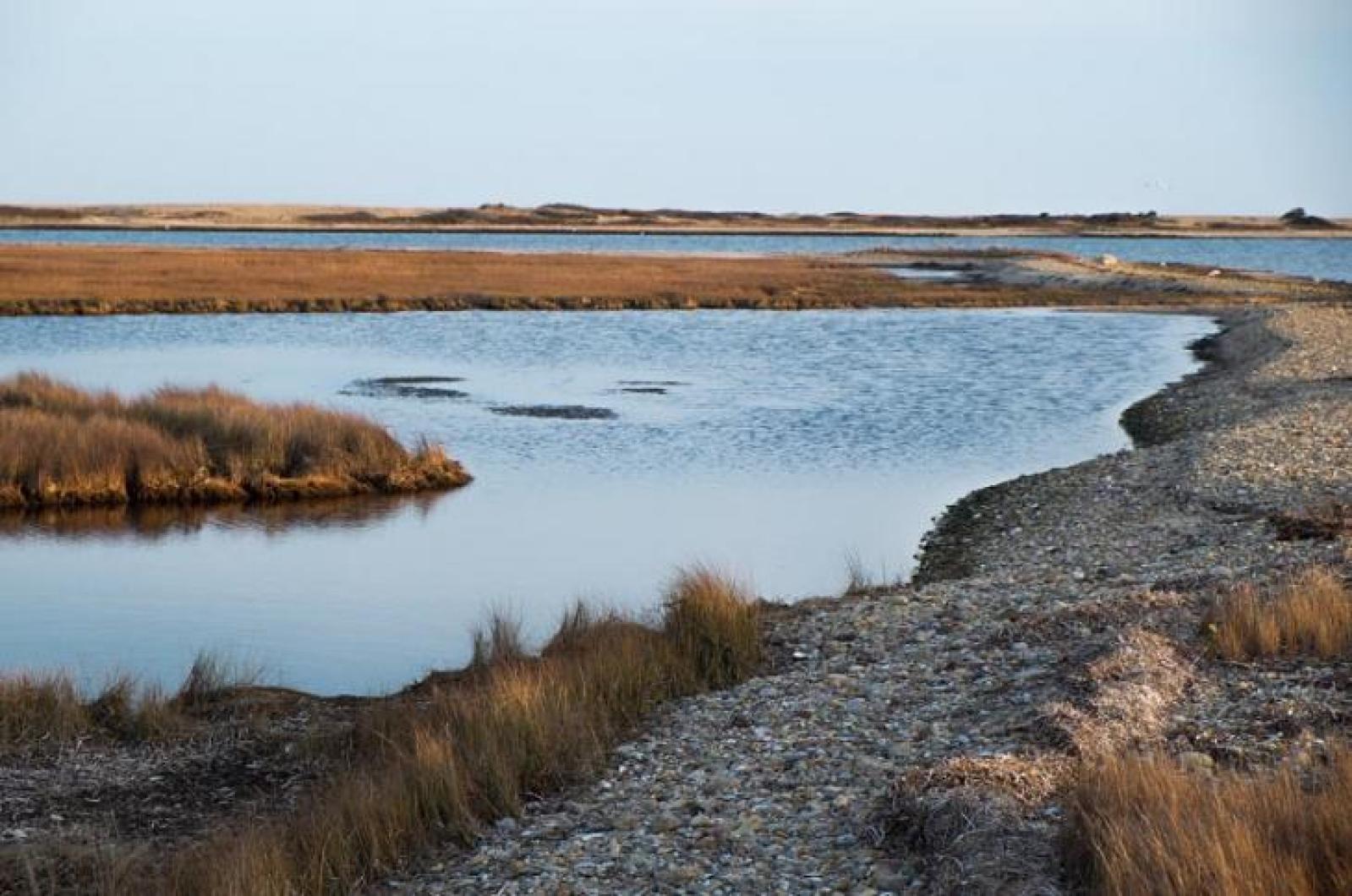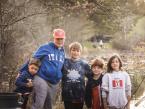Beach access, erosion and the effects of climate change were all topics of discussion at the annual Martha’s Vineyard Surfcasters Association banquet held Saturday in Edgartown.
The event provided an opportunity for more than 80 members of the recreational fishing community to swap stories and eat fresh clams and oysters. Guest speakers from The Trustees of Reservations and the Wampanoag Tribe of Gay Head (Aquinnah) also provided plenty of fishing-related news to digest.
The Trustees announced plans to open the Little Neck section of Cape Pogue Wildlife Refuge that has been closed to the public for more than 70 years following its use as a World War II era military target for aerial bombing practice. On a less positive note, storm overwash linked to climate change is affecting the nesting patterns of protected shorebirds.
Representatives of the Wampanoag tribe described successful efforts to rebuild badly eroded sections of Lobsterville Beach with sand dredgded from the Menemsha Channel. That good news was tempered by an alarming drop in the number of spawning herring that passed through the tribe’s herring run at the head of Menemsha Pond last spring .
The banquet began with an update on an organization dedicated to good sportsmanship, sound conservation practices and public access. Treasurer Phil Horton reported the club is in sound shape with 120 members and $8,000 in the bank. He also noted the surfcasters presented two graduating regional high school seniors with $1,000 scholarships in 2017, an amount that will jump to $2,000 this spring thanks to a successful used tackle sale the club organized.
With club business out of the way, Chris Kennedy, longtime Island manager for The Trustees, took center stage and introduced Eunice Youmans, named general manager for Nantucket and Vineyard properties in November. “I look forward to seeing you all out on the beaches,” she told the fishermen.
Mr. Kennedy described the extent of erosion beginning with Norton Point beach, a narrow ribbon of sand that connects the Katama section of Edgartown to Chappaquiddick. He said a succession of storms had eroded the primary dune that protects the main beach access point at Katama. “There’s really nothing to keep the ocean back,” he said. At the same time, he said the beach at Wasque Point has built up to such an extent that it may now be passable for parts of the year.
He spoke about seasonal beach closures of from four to six weeks in June and July to protect nesting shorebirds, and new protocols designed to let organizations and municipalities find some flexibility in the rules. The cost to work around stringent state and federal regulations was simply too much money for too little access, Mr. Kennedy said.
Noting the many complaints he fielded from disappointed beachgoers who bought a vehicle permit for hundreds of dollars only to be unable to use it in the middle of the summer, Mr. Kennedy recommended that anyone with doubts hold off until the beaches opened. “There will be closures again this year,” he said.
On the general topic of shorebird protection and climate change, Mr. Kennedy said the effects of sea level rise are beginning to be seen in shorebird productivity on Trustees properties. “Increasingly, its not predators, its not vehicles, we are losing nests to overwash,” he said.
On a more positive note, Mr. Kennedy said 65 acres will be open this summer at Little Neck following the recent munitions removal project.
Bret Stearns, director of the Wampanoag natural resources department, reported on the recently completed Menemsha dredging project that helped repair the damage at Lobsterville Beach from a succession of storms that included hurricane Sandy. “If you haven’t been up there it’s beautiful,” Mr. Stearns said.
He said his department is now exploring long-term options to protect the beach and roadway, which could include moving the road or building a seawall. In the short term, the beach needs vegetation to stabilize the sand. To that end, the tribe is appealing for volunteers to help plant 20,000 stems of American beach grass on Sunday, April 29.
There was disappointing news about herring, a once abundant baitfish important to striped bass and bluefish. Mr. Stearns said the counts of returning herring from the tribal managed herring run showed a precipitous decline.
The Vineyard was once home to numerous herring runs. A general overall decline in herring lead to a statewide prohibition in 2005 on the taking of use of herring.
The tribe will host a Islandwide herring forum at on Monday, Feb. 12 at 9 a.m. in the Wampanoag community center. State and federal officials are expected to attend.






Comments (1)
Comments
Comment policy »